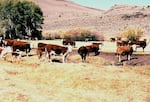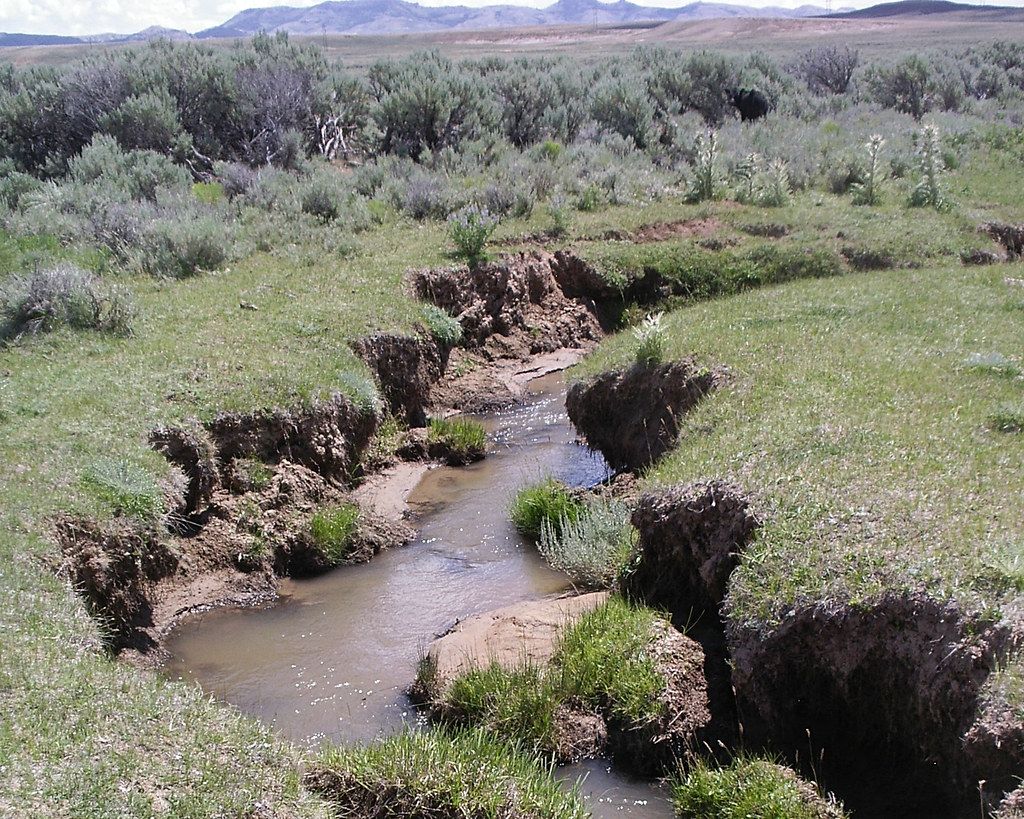
Cattle in Hart Mountain National Antelope Refuge in the 1980s, before livestock were excluded. Ecology professor Robert Beschta says more rangeland refuges are needed.
OSU.
An Oregon State University professor is among eight researchers whose new study calls on federal land managers to reduce livestock grazing on public rangeland.
The report concludes that the combined effects of climate change and grazing can damage the soil and water.
Ecology professor Robert Beschta led the research, which looked at the impact of cattle and sheep on public lands in the West. The study did not involve original field research, but was based on a review of published papers.
Beschta says grazing can compact soils, increase erosion, and reduce the leafy cover near streams. Those effects could be compounded by warming temperatures and changes in rainfall. Beschta and his colleagues argue the Bureau of Land Management and the U.S. Forest Service should create new range reserves that are off limits to grazing.
“We need some landscape level set asides, or reserves. In which we can see how the whole system is responding to a changing climate,” says Beschta, a professor emeritus in OSU's College of Forestry.
Grazing impacts in Wyoming. Credit: OSU
Adding to the problems attributed to livestock: an overabundance of wild hooved animals -- horses, deer, elk, burros -- that also graze rangelands, according to the new report.
The researchers' findings were reported Wednesday in Environmental Management, a professional journal published by Springer.
A spokesman with the BLM says the agency is in the middle of its own assessment of what climate change will mean for its forests and rangelands. That assessment should be complete early next year.

